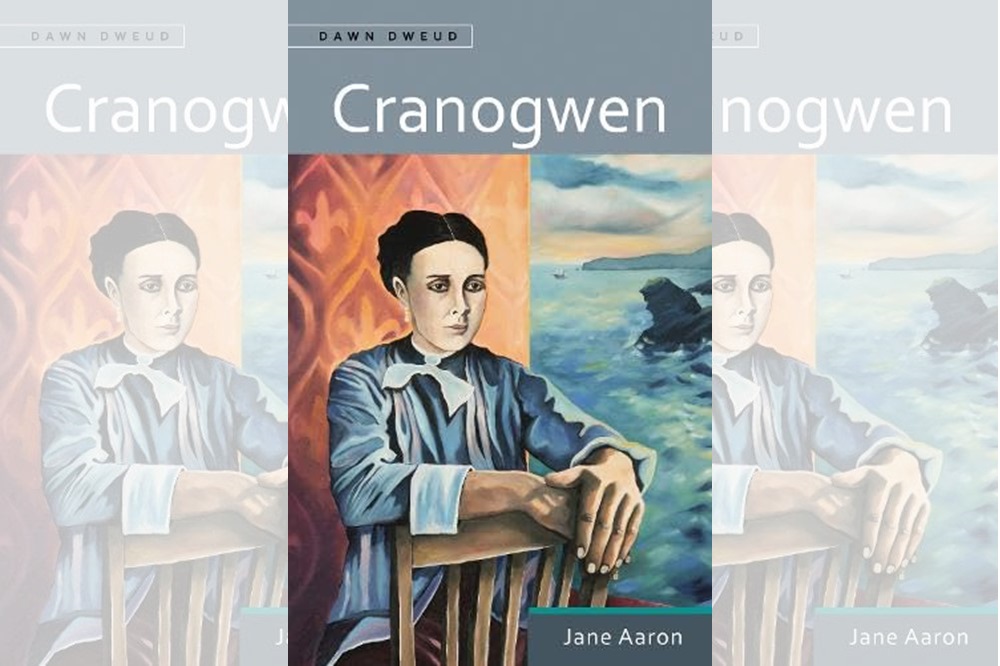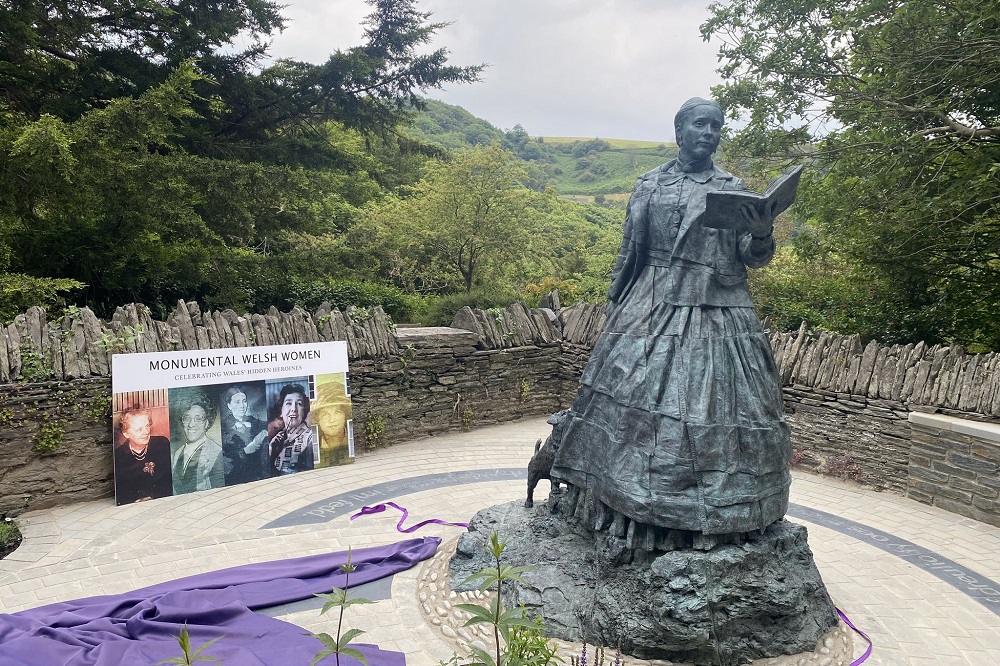Book review: Cranogwen by Jane Aaron

Jon Gower
Sarah Jane Rees, better known by her poetic nom de plume Cranogwen, flew in the face of the times in which she lived.
The patriarchal Victorian age was one in which women were not considered fit for leadership yet this hugely energetic woman pioneered as a prize-winning poet, popular lecturer both in Wales and in America, a magazine editor, inspiring preacher and stalwart advocate of temperance.
As if that list wasn’t long enough she also taught the art of navigation in a school for sailors in her native village, Llangrannog.
As the Amman Valley Chronicle and East Carmarthen News put it in her obituary: ‘It can be safely claimed that no other Welsh woman enjoyed popularity in so many public spheres as did the late Miss Rees.’
And popular she most certainly was. Even on one of her first visits to the south Wales valleys in 1866 the Merthyr Telegraph reported that ‘the attendance was very large, as there could not have been less than one thousand persons present. It does appear that female lecturers are fascinating.’
Energy
In this Welsh-language biography of Cranogwen, Jane Aaron seems to have seemingly matched her subject in terms of energy, diligently piecing together a life where some evidence – such as the sermons Cranogwen delivered to jam-packed congregations – is missing.
By perusing her op-ed pieces in the magazine Y Frythones and her very entertaining, if sometimes evasive answers in her role as the organ’s agony aunt, Aaron pieces together Cranogwen’s views on a gamut of subjects such as the Royal Family, the age-difference between lovers, the Jubilee and the need for independence.
In the case of the latter she saw the British Empire’s bloody land grabs in Africa as a stain on Britishness itself and thought the only way for Wales to get out of such a shameful enterprise was to seek independence like the Irish.
Hurdles
But Cranogwen’s road to success in many fields was not without its hurdles. When she won at the National Eisteddfod detractors asked who had helped her pen her winning verse, or, worse still, which man had actually written it?
This was a time when a woman’s place was in the home, and only the home. A woman was the property of her husband and together they constituted just one person in the view of the law, and that person was the man.
In order for Cranogwen to do what she did, in such suffocating times for women, she had to take the brickbats from men as well as the quiet thanks of women she enabled and those she loved.
Cranogwen didn’t hide the fact that she was unmarried for a reason, and this book plays literary detective to deduce who was ‘Fy Ffrynd’ in the love poem dedicated to a beloved woman friend.
While she lived in a time of some tolerance of such romantic companionship, Cranogwen had to staunchly challenge the pernicious opinions peddled in the so-called Blue Books, the three-volume report on education in Wales that blamed women for the barbarity of the country and even saw chapel-going as a part of the problem.
As one priest in the Anglican Church put it:
‘They (the young people) often meet an evening schools in private houses for the preparation of the pwnc, and this tends to immoralities between the young persons of both sexes, who frequently spend the night afterwards in hay-lofts together…Morals are generally at low ebb, but want of chastity is the giant sin of Wales.’
Fairer world
Such was the backdrop to much of Cranogwen’s endeavour, as she not only worked towards a fairer world for women, but also for a better Wales and in so doing enabling others to follow her example.
As a female reporter put it, ‘Cranogwen certainly did a wonderful thing when, as a young girl in a remote corner of Cardiganshire, she marked out for herself a path, not only new, but we may almost say forbidden to women at the time.’
But she most certainly broke out of the confines of that remote corner of the country, travelling the breadth and length of Wales to preach and otherwise inspire, while her tours of north America saw her visiting New York, Ontario, Detroit and Scranton.
Temperance
When some people thought she was coming to end of her productive life she confounded expectations by throwing herself with great zeal into the temperance movement, starting with the founding of a Band of Hope in Ceredigion, which sought to ensure that young people took the pledge to avoid alcohol.
Cranogwen wrote poetry and anthems for the growing movement to embrace, not least when they marched through villages and towns in a country where it had been suggested ‘the people drink to the most brutal excess.’

Affection
This last flurry of teetotalling activity took its toll – as she travelled thither and hither, galvanizing the temperance movement – as did the effects of deaths of a trio of people she loved.
When she died in 1916 there was a great outpouring of affection and respect, including the establishment of a Cranogwen scholarship in University College, Aberystwyth.
Much more recently we have seen the creation of a sculpture in her honour, on the edge of the land in Llangrannog.
This book offers equally solid testament to her gifts and influence, as both a model and as an enabler, shattering a great many glass ceilings with a force of will as strong and dis-mantling as the wildest coastal storm.
Cranogwen by Jane Aaron is published in the series ‘Dawn Dweud’ by the University of Wales Press. It is available from all good bookshops.
Support our Nation today
For the price of a cup of coffee a month you can help us create an independent, not-for-profit, national news service for the people of Wales, by the people of Wales.






